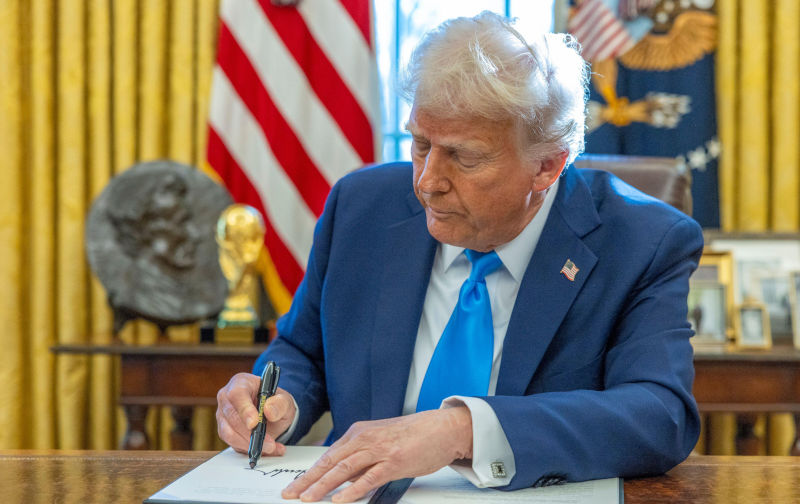Commentary around Donald Trump tends to gravitate to the delusion that he is the leader of the most powerful country on the planet. Every time we blindly accept that delusion, we reinforce it, we assume that we are powerless in the face of such a powerful country. We forget that America’s power is a product of alliances struck during the cold war. Alliances based on the principle of co-operation. That co-operation was/is based on shared values of justice, the rule of law, human rights and constitutional democracy.
That co-operation creates a stable political order was demonstrated by Axelrod’s game theory analysis in the 1980ties. His “prisoner’s dilemma” simulation demonstrated that the principle of tit-for-tat is an effective way of maintaining co-operation. (There are a number of very good explanations of the theory on YouTube).
Trump forces world leaders to face a classical problem in game theory. What do you do if one of the players defects or stops co-operating? Clearly China, France, Germany, Mexico, are benefitting from the extensive research on successful co-operative strategies.
Firstly, they are refusing to be a push-over. Tit-for-tat means that if someone does not co-operate you demonstrate that there is a price to be paid. If we look at what has happened in the first weeks of Trump’s presidency, we note that there has been a global boycott of Tesla, Canadians are boycotting American products and Toronto has begun selling its oil to other countries. Jordan and Egypt are sabre rattling in response to Trump’s attempt to take over Gaza.
Secondly, they are continuing to talk to the US. Tit-for-tat includes the provision that when a defector resumes co-operation, then you stop punishing them. Trump has been operating on the principle that the US is so powerful that there are no benefits to co-operating; until he appreciates that the US needs the rest of the world, he will continue on this crazy course.
But what is this power based on? His military strength is based on having bases around the world from which attacks may be launched. The first step would consist of a co-ordinated action to close those bases. Tear up the treaties on which those bases have been approved – Trump had no hesitation in tearing up the trade agreements with Canada and Mexico. All US personnel will have the choice to be repatriated, or become permanent residents wherever they are based. The infrastructure is to be taken over by the relevant domestic agency. Will the US military comply? Figures vary, but there is an emerging consensus that support for Trump is at best 30% of the adult population and that percentage would be reflected in the military.
The US’ economic power is significant, but not as strong as is imagined. Trump has already warned about retaliation should the BRICS nations follow through in creating a new currency to compete with the US dollar. Similarly, the euro could be a competitor to the dollar. Countries like the UK and Australia could be invited to link in to either the BRICS currency or the euro.
To some, these will seem pie in the sky type proposals. Hopelessly impractical – what about the risks posed by China and Russia? But look at this a bit more closely. How is this different to the deranged ravings of Trump? Precisely because it fits in with the way he negotiates it is likely to be successful. Trump needs to be told that whilst there is no intention of interfering with his domestic policies if he has decided to withdraw from all international obligations, if he is prepared to participate in the ethnic cleansing of Palestinian territories then he can expect that the world will reciprocate by isolating the US.
We cannot be under any illusion that the US decision to stop funding many of the UN’s programs is a major challenge, but it need not be a complete disaster. For example, if the rest of the world were to introduce the Tobin Tax (also known as the Robin Hood Tax — a tax on all financial transactions — it is a progressive tax) we would find that there is more than enough money to fund all these programs.
At the moment, Trump believes he can do what he likes with impunity. The threat of global boycotts of the US, closure of American bases and the introduction of the Tobin Tax will put pressure on him to fall back in line. Co-operation is a win-win solution, but the appeasement of Trump presents a lose-lose scenario.
John Tons is an adjunct researcher in Political Philosophy at Flinders University. John is a political philosopher and activist. His most recent book John Rawls and Environmental Justice describes a mode of governance that will enable communities to implement a sustainable and socially just future.

